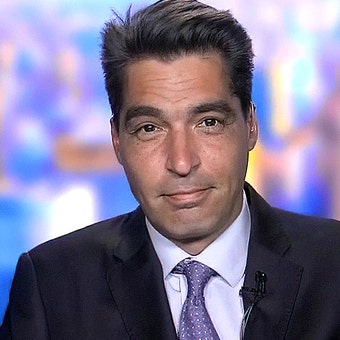Fox Nation looks at the true story of Thanksgiving
Mayflower descendant Lea Filson previews the special on ‘Fox & Friends.’
In the dusty old pages of contemporary Christian chronicles of the Crusades there is to be found a curious and oft repeated theme. When the Crusaders stood victorious in battle the writers of the time said it was owing to God’s grace, but when they tasted defeat, it was "for our sins."
Centuries later, in 1863, Abraham Lincoln summoned similar solemn thoughts in his proclamation announcing the holiday of Thanksgiving.
With the nation ravaged by civil war, Lincoln pointed to the great blessings of everyday life still enjoyed by the nation, saying, "No human counsel hath devised nor hath any mortal hand worked out these great things. They are the gracious gifts of the Most High God, who, while dealing with us in anger for our sins, hath nevertheless remembered mercy."
What Lincoln and the Crusaders both understood was that gratitude is a function of fallibility. It is the living testament to forgiveness. We do not feel gratitude for that which we are owed, but rather, for that which we scarcely deserve.
As we know, not everyone has been on board with the national holiday of Thanksgiving. I am not referring to the modern progressives who decry it as racist, but rather to our third president, Thomas Jefferson. His objection to this tradition born of Puritan New England was owing to his strict belief in the separation of church and state. He did not think the government had a role to play in thanking God.
Jefferson’s positions on slavery and Thanksgiving would lose out in the fullness of time, but his position on the separation of church and state fared better.
One needn’t doubt that Jefferson’s fidelity to disestablishment of religion was sincerely held to point out that it was also very convenient for a man who supported the continuation of the institution of slavery. Separation of church and state was a rallying cry for the pro slavery crowd, for obvious reasons. It kept pesky moral questions out of the political realm, rendering unto God what was God’s and to Congress what was Congress’.
There is an elegant historical symmetry at work here. Lincoln in proclaiming a national day of Thanksgiving made reference to our sins as the cause of our pain and distress. Surely he meant slavery, in particular, as the sin that caused the horrors of war to steal away young lives and rend the country in two. In a sense we can say then, that the United States was not prepared to offer thanks to God in this way, until it released Black Americans from bondage.
CLICK HERE TO GET THE OPINION NEWSLETTER
Jefferson’s positions on slavery and Thanksgiving would lose out in the fullness of time, but his position on the separation of church and state fared better.
Throughout the 20th century public displays of state piety, like prayer in school, would diminish. And yet, even though so many Americans do not see religious or objective morality as a just goal of the government or body politic, for those who do Thanksgiving is a powerful tool and reminder. We do not thank each other for our blessings on this day, but rather God.
CLICK HERE TO GET THE FOX NEWS APP
Let us remember that our nation can do well, but it can also do good. Far more often than not it has. That is something for which we can feel both gratitude and pride.
But like Lincoln, and the Crusaders, we must reckon, cheery in our disposition, with our sins, and faults, and those of our great nation. Only then, as we enjoy the bounties and blessings of America with friends and family can we truly thank God, that notwithstanding our too oft lack of worthiness, He will accept our thanks, protect us from our worst inclinations, and continue to watch over the United States of America.












































